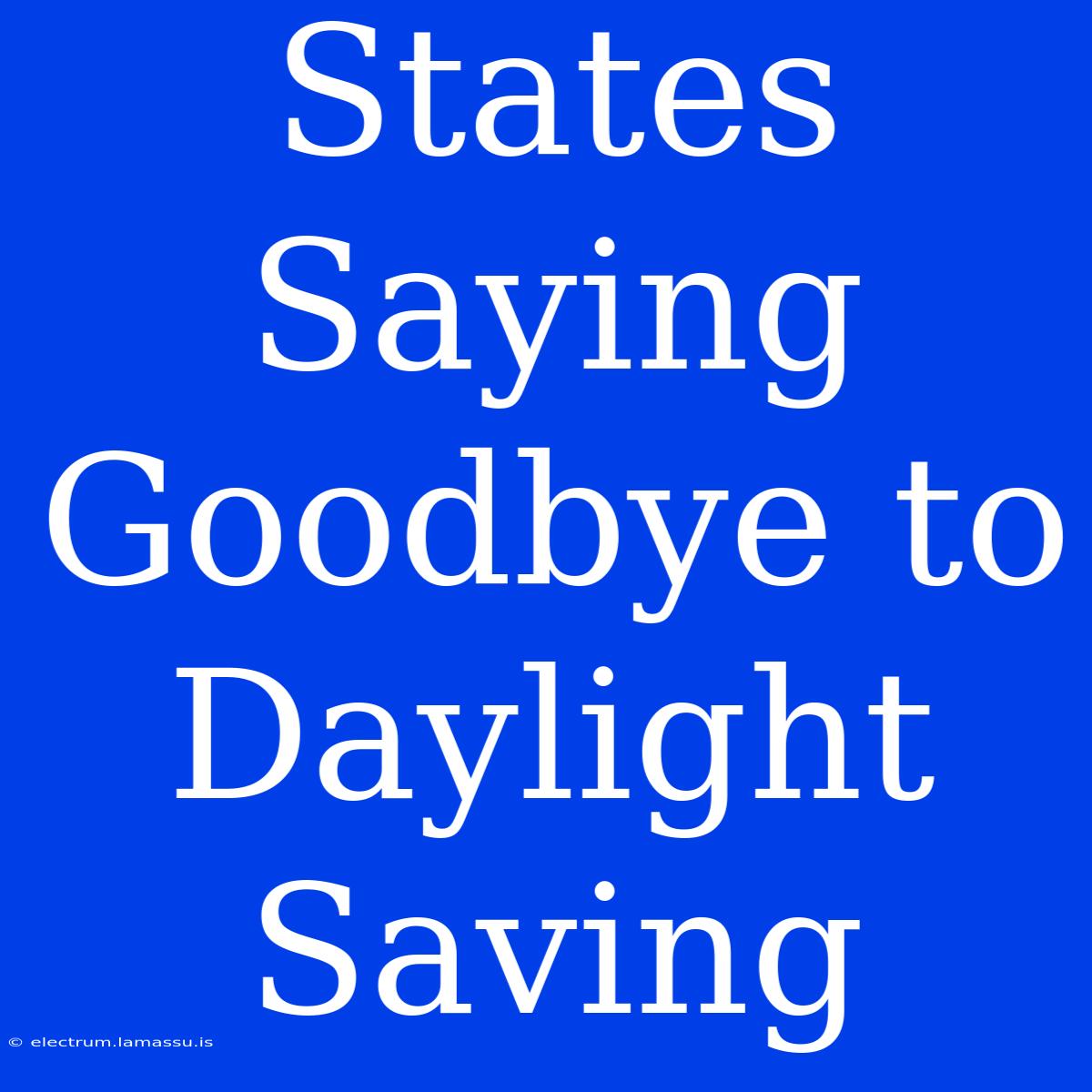States Saying Goodbye to Daylight Saving: A Shift in Time, A Shift in Policy?
Is daylight saving time a cherished tradition or a sleep-disrupting inconvenience? As more states consider abolishing it, the debate over daylight saving time is heating up. The shift away from daylight saving time is a growing trend across the United States, signaling a potential change in how we perceive time and its impact on our lives.
Editor Note: This analysis explores the states opting out of daylight saving time, its implications, and what it means for the future of this time-shifting practice.
Why This Matters: Understanding the reasons behind states' decisions to abandon daylight saving time is crucial, as it sheds light on evolving social priorities and concerns. It also reveals growing dissatisfaction with the current system and its impact on health, productivity, and safety.
Our Analysis: We meticulously researched the arguments for and against daylight saving time, delved into the rationale behind states' decisions, and examined the potential economic and social consequences of a permanent shift away from it. We also explored the diverse perspectives of various stakeholder groups including health professionals, educators, and industry leaders.
Key Takeaways of Daylight Saving Time Policy Shifts:
| State | Status | Effective Date | Rationale |
|---|---|---|---|
| Arizona | Permanent Standard Time | N/A | Health and safety concerns, energy savings |
| Hawaii | Permanent Standard Time | N/A | No daylight saving time since 1967 |
| Florida | Permanent Standard Time | Pending | Safety and health concerns, economic benefits |
| Washington | Permanent Standard Time | Pending | Public health, energy efficiency, and economic benefits |
| California | Permanent Standard Time | Pending | Public health, economic benefits, and energy savings |
| Oregon | Permanent Standard Time | Pending | Public health, energy efficiency, and economic benefits |
| Idaho | Permanent Standard Time | Pending | Aligning with neighboring states, public health and energy savings |
| Montana | Permanent Standard Time | Pending | Public health, energy efficiency, and economic benefits |
States Saying Goodbye to Daylight Saving
Permanent Standard Time: States opting out of daylight saving time will remain on standard time year-round. This move aims to eliminate the twice-yearly time changes and its associated disruptions to sleep patterns, circadian rhythms, and overall health.
Arguments for Abolishing Daylight Saving Time:
- Health Concerns: Studies have linked daylight saving time to an increase in heart attacks, strokes, and other health issues.
- Safety Concerns: The shift to standard time could improve safety by aligning school schedules with daylight hours, reducing pedestrian accidents.
- Economic Benefits: Business owners and farmers argue that a fixed time system reduces confusion and improves scheduling efficiency.
Arguments for Maintaining Daylight Saving Time:
- Increased Daylight: Daylight saving time provides extended daylight hours in the evening, which can benefit businesses, recreation, and outdoor activities.
- Energy Savings: Proponents argue that daylight saving time reduces energy consumption by shifting daylight hours later in the day.
The Potential Impact of Permanent Standard Time:
Health: While some individuals experience improved sleep and overall health with standard time, others may find the shift to later sunrises challenging.
Education: School schedules could benefit from aligning with daylight hours, but potential adjustments may be necessary.
Economy: The business community's response to permanent standard time could vary, with some industries potentially experiencing improved efficiency and others facing adjustments.
The Future of Daylight Saving Time:
The debate over daylight saving time continues, with states weighing the pros and cons of each approach. The future of this time-shifting practice depends on evolving public opinion, scientific evidence, and the ultimate decision-making process of individual states and the federal government.

